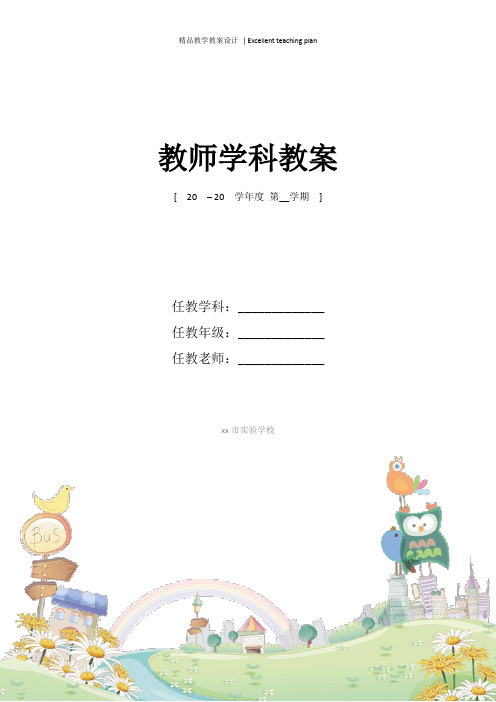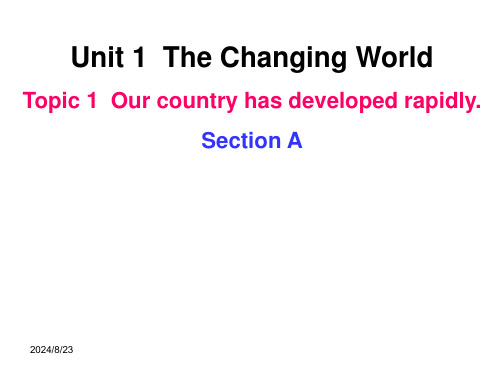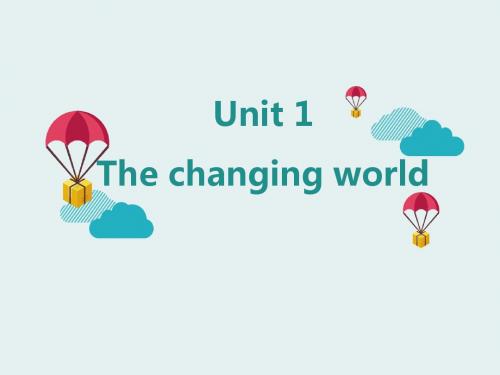仁爱版英语九年级Unit1 Topic 1 Section D课件
仁爱英语九年级上册Unit1 Topic2 SectionA---Section D 教案新部编本

教师学科教案[ 20 – 20 学年度第__学期]任教学科:_____________任教年级:_____________任教老师:_____________xx市实验学校仁爱英语九年级上册Unit1 Topic2 SectionA---SectionD 教案Section AThe main activities are 1a, 2 and 3a. 本课重点活动是1a, 2和3a。
Ⅰ. Teaching aims and demands 教学目标1. Master some new words and useful expressions:probably, European, population, take place, because of, policy, neither, recent2. Go on studying the present perfect with “just, already, yet, ever, never”:(1) I have just called you.(2) Have you found him yet?(3) Have you ever been to France?(4) I’ve never been there before, …(5) But great changes have already taken place in China recently.3. Talk about the changes of economy and population in China.4. Let the students know that they should cherish the happy life now. Ⅱ. Teaching aids 教具录音机/多媒体课件/两张全家福照片(旧与新)/小黑板/超市购物图Ⅲ. Five-finger Teaching Plan 五指教学方案Step 1 Review 第一步复习(时间:12分钟)(教师出示一张超市购物图,通过询问学生是否曾去购物,引入本课话题。
九年级英语上册 仁爱版.ppt课件

1.--Have you found him yet ? --Yes ,he has already gone home. yet, already 是副词,表示“已经,仍然, 还 ”。 already 多用于现在完成时态的肯定 句,可放在句中,也可放在句末。 yet常用在 现在完成时态的否定句和疑问句, 常放在句 末。 【链接】never 多用于否定陈述句,ever 多用 于疑问句,问初次经历,just 位于谓语动词 以后,before 一般放在句末。
Read 3a again and then mark (T) forTrue of (F) for False. (T )1.Kangkang thinks that China developed slowly in the past. (T ) 2.China has a larger population than any other country in the world. ( F) 3.China is developing more slowly than before because of China’s one-child policy. (T ) 4.Maria thinks it’s bad to be a “Little Emperor”. ( F) 5.It’s possible that Kangkang’s father was the only child in his family.
just already yet ever never
A: Have you ever been to France ? B: No, I have never been to any European . But Michael has just come back from France. He likes it very much. He says he has neverseen such a beautiful country before. A: Have you seen himyet ? B: Yes, I have already seen him.
仁爱版九年级上册英语练习试题Unit 1 Topic1 (无答案)

仁爱版九年级英语练习题Unit 1 Topic 1 Section A一.用所给词的适当形式填空。
1. _ Where have you (be)?_ I have been to some places of interest.2. Maria has just (come) back from her hometown.3. Look! Some boys (play) basketball on the playground.4. Jimmy (do) his homework at 7:00 yesterday evening.5. My mother (go) to the shop to buy some food and she will come back in one hour.6. She is lonely because she has no friends (talk) with.7. It’s important (keep) our classroom clean.8. My father always (read) newspaper after breakfast.9. The students (finish) doing their homework just now.10. (watch) TV too much is bad for your eyes.11. We should do something (protect) our earth.12. She has gone to China (visit) the Great Wall.13. I have been to an English summer school(improve) my English.14. We’d better wash our hands before(have) meals.15. He often watches TV after (finish)his homework.16. Now (come) your turn.17. There (go) the bell.18. Here (come) the bus.19. My father is happy (meet) my uncle20. _Where’s Lily? _ She has (be) to the library.21. Would you like something (eat).22. He has something important (tell) you.二.句型转换1. The Greens had supper very late yesterday.(改为一般疑问句)2. I got up at 7:00 last Friday. (改为否定句)3. I have been to Mount Huang. (提问)4. Take these books to the office. (改为否定句)5. We had a good time at the party. (改为同义句)6. There goes the bell. (改为同义句)7. My sister is too young to go to school. (改为同义句)8. It is so interesting a book that everyone likes it very much. (改为同义句)9. The passage is too difficult for her to understand. (改为同义句)10. The book is so easy that everyone can understand it. (改为同义句)三.选择题( ) 1. _ Have you ever been to the Summer Palace?_ Yes , we have._ When you there?_ Last month.A. have, goneB. did, goC. will, goD. is, going( ) 2. _ Where is your mother?_ She the supermarket.A. has gone toB. has beenC. has been toD. has gone( ) 3. _ Have you ever been to the Beijing Zoo?_ No, . I’ll go there this weekend.A. I’ve never been thereB. I haveC. I’ve been thereD. I don’t4. _ I didn’t see you the whole summer holiday._ I Yuannan on August 2nd. I there for two weeks.A. went to, have beenB. have gone, have goneC. went to, wasD. have gone, have been5. I saw her on the street yesterday morning.A. runB. to runC. runsD. running6. Great changes have in my country these years.A. taken placeB. happenedC. comeD. be7. Let’s make our school .A. more beautiful and more beautifulB. beautiful and beautifulC. more and more beautifulD. more beautiful and beautiful8. the way, where did you buy this dress?A. InB. withC. AtD. By9. Kate isn’t at home now. She another city.A. has been toB. has gone toC. have been toD. have gone to10. Zhang Hua won the game. His classmates are to hear this news.A. happyB. sadC. worriedD. disappointed四.根据句意及首字母提示完成句子1. _ Would you like to be a v to help thepoor children?_ Yes, I’d love to2. The pages aren’t in p order.3. Listen! The b is ringing. Let’s go to the classroom.4. The c is very busy today. She is havinga meeting now.5. My name is Li Ming. Li Haiyun is my gAnd I’m his g .6.We all had a good time in the summer h7. I’m not good at English. I don’t know how to i my English.8. _ Did you enjoy your t to Yunnan?_ Yes. It’s really a beautiful place to visit.9. We have just (回来) from Beijing.10. My best friend lives in Hong Kong now. I haven’t seen him (很长时间)11. It’s so late. It isn’t (合适的)to telephone your teacher now.12. (顺便问一下),what time will the soccer match begin?五.从A栏中找出B栏相对应的答语A( ) 1. Where did you go?( ) 2. When will your father be back?( ) 3. Where have you been?( ) 4. I spent the whole holiday helping the farmers do farm work.( ) 5. Have you ever cleaned your room?Ba.I have been to West Lakeb.No, I haven’tc.I went to the zood.Next Fridaye.Wow, you’re great.Section B一.句型转换1.Our country has developed rapidly. (改为一般疑问句)2.She has been a volunteer in a disabledChildren’s home.(改为反意疑问句)3.The children have a happy life now. (改为同义句)4.Jim gets up early in order to get to schoolon time. (改为同义句)5.Mike’s father doesn’t enough money tobuy a new coat for him. (改为同义句)6.I have taken part in some volunteeractivities during the summer holidays. (改为同义句)7.Though he is poor, he is happy. (改为同义句)8.Because he was ill, he didn’t go to school.(改为同义句)9.How wonderful the experience is! (改为同义句)10.She is poor, she can’t afford the newhouse for her son. (改为同义句)11.I’m so poor that I can’t afford a big house.(改为同义句)12.Tom got up early in order to catch theearly bus. (改为同义句)二.根据句意及首字母提示完成句子1. The poor children had no time , because they had to support their families.2. _ he found his bike?_ No. He feels upset.1.There are too many things. I want to tie them with a r .2. We should help the d people when they are in trouble.3. He fell off his bike. L , he didn’t hurt himself.4. _ It’s a little cold now. Would you pleases the window?_ OK.5. In my c , I like playing with toys.6. With the d of China, Chinese live a happy life now.7. In the old days, many children couldn’t get an e .8. Many t like playing computer games in the Net Bar.三.选择题( ) 1. You have come back from your hometown, ?A. have youB. haven’t youC. do youD. don’t you( ) 2. The man is very poor. We shouldn’t laugh at him.A. ableB. abledC. disableD. disabled( ) 3. I’m so busy that I have no time .A. go shoppingB. going shoppingC. to go shoppingD. gone shopping( ) 4. The young man works hard to his family.A. supportB. developC. buyD. get( ) 5. _ I helped a disabled man yesterday._ wonderful experience!A. WhatB. What aC. HowD. How a( ) 6. it rains heavily, the farmers are still working in the fields.A. Though, butB. Though, howeverC. Though, /D. Although, but( ) 7. I sat in front of the classroom hear clearly.A. so thatB. in order toC. in order thatD. for( ) 8. _ This morning I saw Han Fang._ It can’t be her. She Hainan.A. has been toB. has gone toC. went toD. will go to( ) 9. In the past, the poor to buy a house to live in.A. can affordB. can’t affordC. Can’t affordD. couldn’t afford( ) 10. Life was very hard for these .A. Children laborersB. child laborerC. child laborersD. children’s laborers( ) 11. What’s more, some of them to work and money to help their families.A. had, make, supportB. has, make, supportC. have, made, supportedD. having, makes, support( ) 12. In the past, children had food to eat and clothes to wear.A. little, many warmB. few, some warmC. much, no warmD. little, no warm( ) 13. _ Sorry, I didn’t bring bag._ It doesn’t matter. You can use mine.A. big enoughB. enough bigC. an enough bigD. a big enough( ) 14. _ We’ll have a day off._ A. Is that so? B. Thanks a lotC. With pleasureD. Is that all( ) 15. _ Have you the door?_ No, I haven’t.A. shutB. shutsC. to shutD. shutting四.从方框内选择适当的短语完成句子,并注意其正确形式。
仁爱版 初三英语九年级上册Unit1 Topic1PPT课件

Topic 1 Our country has developed rapidly. Section A
2024/8/23
2024/8/23
2024/8/23
• have/has been to…去过。。。 • He has been to Hubei. • 他去过了湖北 (人已经不在湖北) • I have been to Beijing. • 我去过了北京。(人已经不在北京) • have/has gone to... • 已经去了,它强调主语此时不在说话地点。 • e.g. She has gone to Hubei. • 她已经去了湖北。(人已经不在说话地点) • She has gone to Beijing. • 他已经去了北京。 (人已经不在说话地点)
2024/8/23
p124
2024/8/23
Find the sentences with Present Perfect Tense in Section A. Read them aloud.
You have just come back from your hometown.
Great changes have taken place there and my hometown has become more and more beautiful.
2024/8/23
2a TLhisetennetoxtthedcaoyn,vMerasartiiaoncaanmd feillbinatchke .blSanhkes.mTheetn practice it withMyoicurhpaaertlneirn. the school.
Unit1+Topic+3+课文详解课件2023-2024学年仁爱版九年级英语上册

Section B
• Maria: What are you reading, Jane? be动词+V.ing (现在进行时)
• Jane: I’m reading a newspaper from Canada. Martin showed me an interesting article.
街区
事实上=in fact
wonderful place to live. Near our block, there are beautiful parks, good schools,
famous museums and excellent restaurants. And you can go to plays, concerts and
Lesson Three
Topic3 A-B
Words and passages
单词认读
背诵词汇
背诵词汇
词汇 1. with the money 2. so that 3. so...that... 4. in fact/as a matter of fact 5. come for a visit 6. in need 7. decide on sth. 8. provide sth. for sb./provide sb. with sth. 9. feel good about... 10. lend sth. to sb/lend sb. sth.
It is about a program that helps homeless people. show sb.sth.= show sth. to sb.
定语从句:从句充当形容词,修饰前面的program
给某人展示某物
仁爱版九年级英语上册 Unit 1 Topic 2 Section D 课件(共25张PPT)

例如:
1.Jane is cute, →So( )Maria. 2.Jane can swim. →So( )Maria. 3.Jane will swim. →So( )Maria. 4.Jane went swimming. →So( )Maria. 5.Jane often goes swimming. →So( )Maria. 6.Jane has been a swimmer for six years. . →So( )the twins.
* Neither / Nor + be/情态动词/助动词+主语 (全部倒装)
=含有either的否定句,表示上句所谈到的否定情 况也适合于另一主语
1.Jane isn’t cute, → Neither / Nor ( )Maria. 2.Jane can’t swim. → Neither / Nor ( )Maria. 3.Jane won’t swim. → Neither / Nor ( )Maria. 4.Jane didn’t go swimming. → Neither / Nor ( )Maria. 5.Jane doesn’t often go swimming. → Neither / Nor ( )Maria. 6.Jane hasn’t been a swimmer for six years. . → Neither / Nor ( )the twins.
Read through Sections A-C and fill in the blanks with the correct words.
I really _h_a_t_e___ going to a place like that.
仁爱版九年级英语上册 Unit 1 Topic 3 Section C 课件(共28张PPT)

there will be less ____ in the future.
The government in every country has worked for many years to support the homeless but more needs to be done.
1.What is one of the most basic human needs ?
One of the most basic human needs is a home.
2.Do all the people have their homes around the world ?
No, while most people around the world value their homes , there are many people in every country who are homeless .
Because of the wars, they have to live on the streets or in a shelter.
Let's guess.
Why are they homeless?
Because they don't have a job, 挣钱 or because they don't earn enough money.
Scanning--careful reading
Task 2: Read Paragraph 2 and 3 carefully and list the reasons(理由) for homelessness in whole sentences(完整句子).(4 mins)
仁爱版九年级英语上册课件Unit 1 Topic 2 Section A

【链接】never 多用于否定陈述句, ever 多用于疑问句,问初次经历, just 位于谓语动词以后,before 一 般放在句末。
例如: 1). ---Would you like to go to see the film?
---No, I’ve seen it already. 你想去看电影吗? 不,这部电影我已经看过了。
2. ---I really hate to go shopping. ---So do I. So do I. 为倒装句。
表示前面提到的肯定情况也同样适合另 外一个主题。表示“ 某某也一样” 其 结构“so +be/情态动词/助动词+主语”
例如: Kangkang is a clever student. So Maria is. 康康是个聪明的学生。Maria 也是。
Grammar
1. --Have you found him yet? --Yes ,he has already gone home.
yet, already 是副词,表示“已经,仍然, 还 ”。 already 多用于现在完成时态的肯定句, 可放在句中,也可放在句末。 yet常用在现在完 成时态的否定句和疑问句, 常放在句末。
expressi 2.Have you found him yet?
ons
3.He has already gone home.
Homework
1. Make five sentences, using ever, never, yet, already and just.
2. Preview Section B.
Unit 1 The changing world
Topic 2 The population in developing
- 1、下载文档前请自行甄别文档内容的完整性,平台不提供额外的编辑、内容补充、找答案等附加服务。
- 2、"仅部分预览"的文档,不可在线预览部分如存在完整性等问题,可反馈申请退款(可完整预览的文档不适用该条件!)。
- 3、如文档侵犯您的权益,请联系客服反馈,我们会尽快为您处理(人工客服工作时间:9:00-18:30)。
Grammar
It has already Olympic Games.
I haven’t
succeeded in hosting the 2008
taken place there…
Great changes have
seen you for a long time. Have you been to any other place?
Yes, I have./ No, I haven’t.
In the past…
Retell 1a in Section C
At present…
What about leisure activities?
In the past…
play cards play chess Leisure activities are the kinds of things people like to
in the present and dream about the future.
Present Perfect (Ⅰ) I have been to Mount Huang with my parents. She has gone to Cuba to be a volunteer. China has developed rapidly since the reform and
do to relax and enjoy themselves when they are not working or going to school.
watch movies in the open air
fly paper planes
In the past…
play hide-and-seek
C. Because they don’t want to work.
D. Because they are too free.
1a Read the following passage and complete the table on Page8. playing hide-andseek watching operas
e.g. Computer plays an important part in our
daily lives.
life--- lives
lives live--- lives
n. 生活,生命
v. 居住,生活
2. Watching operas and listening to the radio were the main activities in their spare time. 看戏和听广播 是他们在空闲时间的主要活动。 watching operas and listening to the radio 是动 名词短语,作这个句子的主语。 e.g. Reading books plays an important part in his life.
playing games on computers
Retell 1a according to the table.
1. Leisure activities play an important part in people’s lives. 休闲活动在人们的生活中起着重要的作用。 play a/an… part = play a/an… role 扮演……角色;起……作用;有……影响
2. Kids often got together to ______.
A. play cards C. play hide-and-seek B. listen to the radio D. play games on computers
3. Why do Chinese people do all kinds of leisure activities now? A. Because they have a lot of money. B. Because they have time and chance.
Unit 1 The Changing World
Topic 1 Our country has developed rapidly. Section D
Read through Sections A-C and understand Functions the underlined parts.
roll iron rings
watch operas
listen to the radio
At present…
watch team sports
read books
fly model planes
play games on computers
At present…
go roller skating
There goes the bell. =That’s the bell. = The bell is ringing. What a wonderful experience!
= How wonderful the experience is! Though I had no time to travel, I still felt very happy. = I had no time to travel, but I still felt very happy. To help others makes us happy. make sb./sth. + adj. make sb./sth. do sth. I think it is important to remember the past, live
watch TV
chat on the Internet
make a tour abroad
Read 1a and choose the best answer. 1. How many leisure activities are there in the past? A. Many. B. Little. C. None. D. Few.
In the past
playing cards or chess listening to the radio
playing watching team sports
chatting on the Internet
At present traveling all over the world
